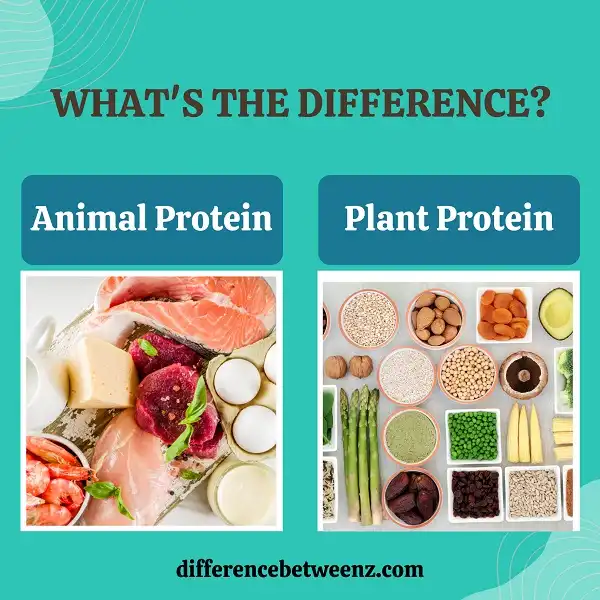Are you considering protein supplements to help with your fitness goals? You may be wondering if plant-based protein or animal-based protein is better for you. This article will compare and contrast the benefits of plant-based and animal-based proteins. By understanding the differences, you can make an informed decision about which type of protein is best for you. Plant-based proteins are becoming increasingly popular, but there are still many misconceptions about them. So let’s start by clarifying what plant-based proteins are. Protein is a nutrient found in all cells of the body and is necessary for growth and maintenance. Protein can be derived from both plants and animals.
What is Plant Protein?
Plant protein is a type of protein that is derived from plants. This can include proteins from legumes, grains, nuts, and seeds. Plant protein is a popular alternative to animal protein, as it is typically lower in calories and fat. Additionally, plant protein is a good source of fiber and vitamins. While plant protein is not as complete as animal protein, it can still provide the body with the essential amino acids needed for muscle growth and repair. Plant protein can be found in a variety of foods, including beans, lentils, quinoa, and chia seeds. It is also possible to find plant protein powders that can be used in smoothies or baking recipes.
What is Animal Protein?
Animal protein is a type of protein found in animals, including humans. Animal protein can be found in meat, poultry, fish, eggs, and dairy products. Animal proteins are complete proteins, meaning they contain all the essential amino acids our bodies need. Animal protein is an important part of a healthy diet as it helps to build and repair muscle tissue, provides energy, and helps the body to absorb essential vitamins and minerals. Animal proteins are also a good source of omega-3 fatty acids, which are beneficial for heart health.
Difference between Plant Protein and Animal Protein
Plant proteins and animal proteins are both essential for the human body, but they differ in a few key ways. Plant proteins are typically lower in calories and fat than animal proteins, and they’re also typically lower in certain nutrients like vitamin B12. On the other hand, plant proteins tend to be higher in fiber and antioxidants. When it comes to amino acids, the building blocks of protein, animal proteins are typically considered to be “complete” because they contain all nine of the amino acids that humans need to survive. Plant proteins, on the other hand, are often “incomplete” because they lack one or more of those essential amino acids. As a result, people who follow a vegan or vegetarian diet may need to be especially mindful of getting all the right amino acids from their food. However, it’s important to note that there are many different types of plant proteins, so it’s possible to get all nine amino acids from plant-based sources. Ultimately, both plant proteins and animal proteins offer distinct benefits, and it’s important to include both in a well-rounded diet.
Conclusion
Plant-based proteins are becoming more popular as people become more health-conscious. However, there is some confusion about the difference between plant and animal protein. We’ve outlined the key differences here to help you make an informed decision about which type of protein is best for you.


